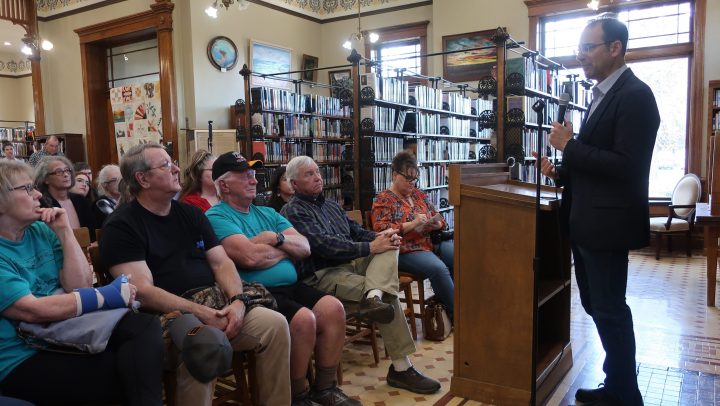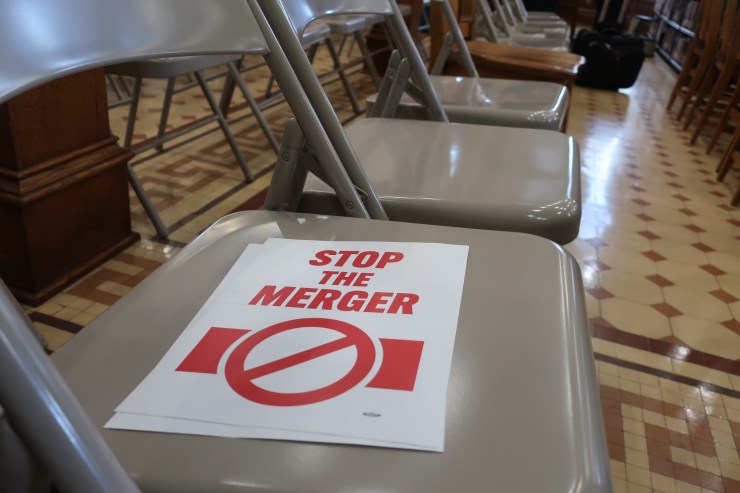
Rural towns fear Kroger-Albertsons merger will close stores and raise prices
Rural towns fear Kroger-Albertsons merger will close stores and raise prices

Grocery mergers have a bad rap in Sharon Ketchum’s family. Ketchum, 60, lost her job at a Safeway grocery store in rural northwest Colorado after the company announced its merger with Albertsons in 2014.
“They walked in one day and said, ‘We’re closing your store in two weeks,’” she said.
She ended up moving back to her hometown of Cañon City, Colorado, to work at another Safeway. Now, she fears the rug will be pulled out from under her again.
Kroger and Albertsons — two of the country’s largest grocery companies — are in talks to join forces. The Federal Trade Commission is reviewing their $25 billion merger plan for antitrust violations.
Meanwhile, rural towns are watching the deal closely. Food costs can run high in areas with few stores, and past mergers have led to store closures in some communities.
“At my age, at 60, who’s gonna hire me if another [store] closes?” Ketchum said.
Her town of several thousand residents has an Old West-style main street and just two main grocery stores right across the street from each other: Safeway, owned by Albertsons, and City Market, owned by Kroger.
Mayor Ashley Smith said a merger of the two would mean the only competitors would be miles away.
“We’re also worried about jobs, empty buildings, if there’re store closures,” she said, “and also choice and variety of products to choose from.”
Kroger, which would absorb Albertsons and the dozens of other supermarket chains under its corporate umbrella if the deal goes through, says it won’t shut any stores as a result of the merger. The companies argue it would also help streamline supply chains and keep prices competitive against Walmart, Costco and other big grocers.
That might not help communities that already have few grocery options, according to Sanjai Bhagat, a finance professor at the University of Colorado Boulder.
“The bar is pretty high to show whether or not mergers actually are beneficial to consumers,” he said.
The deal is drawing a lot of skepticism from trade unions, consumer advocates and state attorneys general across the political spectrum, from Idaho to Illinois.
Colorado Attorney General Phil Weiser said that if the Federal Trade Commission doesn’t stop the deal, his and other states might try to.

“I’m committed to hearing from people and making sure that we don’t allow a merger to go through if it’s gonna harm competition,” he said.
The companies are also working on a plan to sell off some stores in rural areas to pass muster with the FTC. They expect a final decision by early 2024.
Meanwhile, grocery prices are still top of mind for customers, with annual food inflation around 8.5%.
As she pushed her weekly haul to her car, Cañon City City Market shopper Lee Eitel said she’s been following news about the merger closely.
“Just hoping it helps us instead of prices going up. But I doubt it,” she said.
Eitel, who is single and on a fixed income, added that her grocery bill this week was a whopping $100.19 for milk, eggs and a few other staples.
There’s a lot happening in the world. Through it all, Marketplace is here for you.
You rely on Marketplace to break down the world’s events and tell you how it affects you in a fact-based, approachable way. We rely on your financial support to keep making that possible.
Your donation today powers the independent journalism that you rely on. For just $5/month, you can help sustain Marketplace so we can keep reporting on the things that matter to you.











